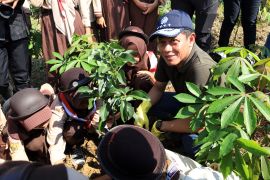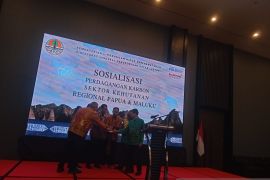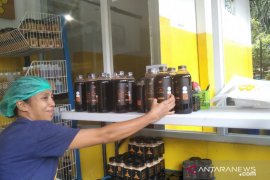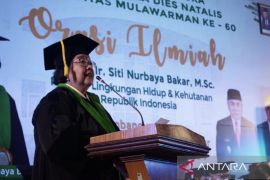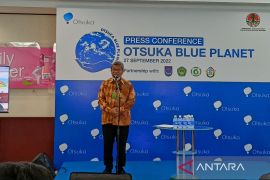The government is currently pushing for the development of multi-business forestry that could be carried out by permit holders for forest utilization.
"The forestry business generally covers a very large area, but medicinal plants do not require a large area. This chance can be utilized," director general of sustainable forest management at the ministry, Agus Justianto, said at an event organized by the Indonesian Chamber of Commerce and Industry (Kadin) in Jakarta on Tuesday.
During the event, related stakeholders discussed the potential for utilizing natural resources for making traditional and modern medicines. With a forestry multi-business scheme encouraged by the government, permit holders can collaborate with other parties for the development of HHBK.
"The potential is huge because existing derivative products can be used for various aspects such as traditional medicines, and especially cosmetics," he added.
He said the huge potential for drugs and cosmetics is due to the high public demand for these two types of products.
"The potential utilization of these medicinal plants is very large because the planting period is not too long," he added.
Related news: Indonesia introduces medicinal plants packaged in G20 souvenirs
For this reason, Justianto called for the development of medicinal plant derivative products in the country and the blocking of patent attempts by foreign parties.
In addition, medicinal plants have been used by indigenous peoples in Indonesia for making traditional medicines. However, certification from the Food and Drug Supervisory Agency (BPOM) is still required for their wider use.
Deputy chairperson for sustainable plantation forest management at the Indonesian Forest Entrepreneurs Association (APHI), Soewarso, said that the potential for spices and medicinal plants in Indonesia was evident when the COVID-19 pandemic occurred.
It can also be gauged from the increase in the emergence of traditional medicinal products and their sales. Some products have even recorded an increase in exports, such as essential oils, he added.
"It is time for us to scale up. This meeting discusses our potential to increase the production because we also saw the opportunity to export the products," he added.
Related news: Strengthening evidence-based herbal medicine
Related news: Preserve traditional herbal medicine: Jamu industry entrepreneur
Translator: Prisca Triferna V, Resinta S
Editor: Yuni Arisandy Sinaga
Copyright © ANTARA 2022


